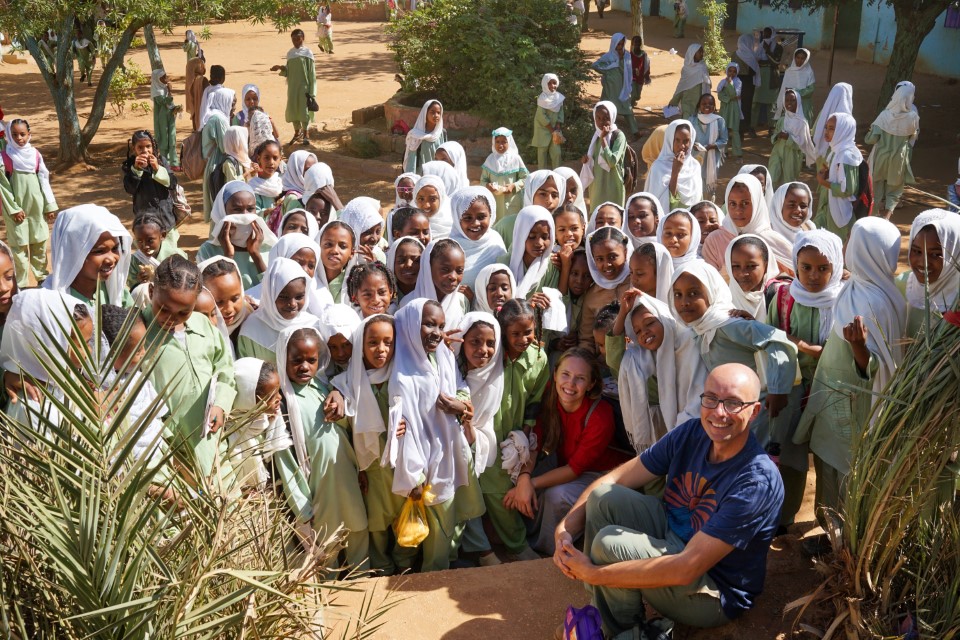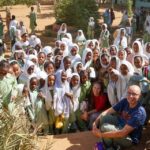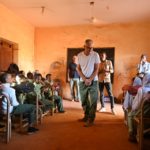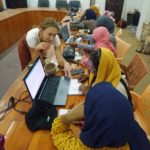The PCMA UW expedition in Soba (Sudan) has recently completed the latest season of fieldwork. Researchers led hands-on training for young professionals in archaeology from Sudanese universities, workshops for experienced researchers from Sudanese institutions, activities in local elementary schools, and research on the role of women in the transmission of histories and customs.
Soba is one of the largest archaeological sites in Sudan. It is located in the fastest growing region of the country, the Khartoum State. In medieval times, it was the capital of the kingdom of Alwa while now the region is a booming suburb of Khartoum. This setting brings both opportunities and challenges. On the one hand, the region is home to Sudan’s largest universities and the major cultural institutions operating throughout the country. On the other hand, the development of Sudan’s largest city is extremely rapid, especially in terms of population, which results in expansion of urban areas.
– This year’s our program focused on using the advantages of this location by conducting training programs, organized in cooperation with the National Corporation of Antiquities and Museums in Sudan (NCAM), and on working with Soba residents to build awareness of the tangible and intangible heritage at the site, – says Dr. Mariusz Drzewiecki (PCMA UW), the head of the Soba expedition.
Over the course of two weeks, six students from Al-Neelain University and NCAM worked alongside researchers from Poland learning about various methods of archaeological documentation, fieldwork techniques and approaches to analysis of archaeological heritage using Soba artifacts as case studies. In addition, thirteen experienced researchers (from five Sudanese institutions: NCAM, University of Khartum, Al-Neelain University, University of Bahri and Shendi University) participated in a week-long workshop on the use of remote sensing methods and geographic information systems (GIS) in archaeology.
Meetings were held with children in six elementary schools in Soba, after obtaining the necessary permissions and with the approval of the principals. The classroom activities included discussion and workshops which introduced the children to archaeology and its research methods. Conversations were held about Soba’s past and the contemporary stories relating to the past. The students also drew objects, stories, events or people that they associated with ancient times. – Our goal in such activities was to start a discussion about the past, while not imposing any specific vision of the past on the children – explains Dr. Drzewiecki.
An ethnographic project on social communication through costume and the role of women in nurturing local traditions was carried out for three weeks. Twenty interviews were conducted with women living in Soba, which showed that women have a central role in maintaining and passing on old practices and customs. This is particularly evident in local costumes, dishes, styles of house decoration (interiors and exterior facades), household management, and the presence of items indoors and in the homestead that are of special value to the members of the household or the wider community.
– This season the work of our team focused on getting to know the people of Soba and building professional relationships, in accordance with the adage that ‘science should serve the public’. Activities aiming at exchanging expertise between Sudanese and Polish researchers were the main point on our agenda – says the expedition director.
Read more about Soba
-
Członkowie ekspedycji Szkole Podstawowej dla dziewcząt w Gana’ab (fot. KKdoo)
-
Spotkanie z dziećmi w szkole (fot. Joanna Ciesielska)
-
Szkolenie dla studentów (fot. Mariusz Drzewiecki)




